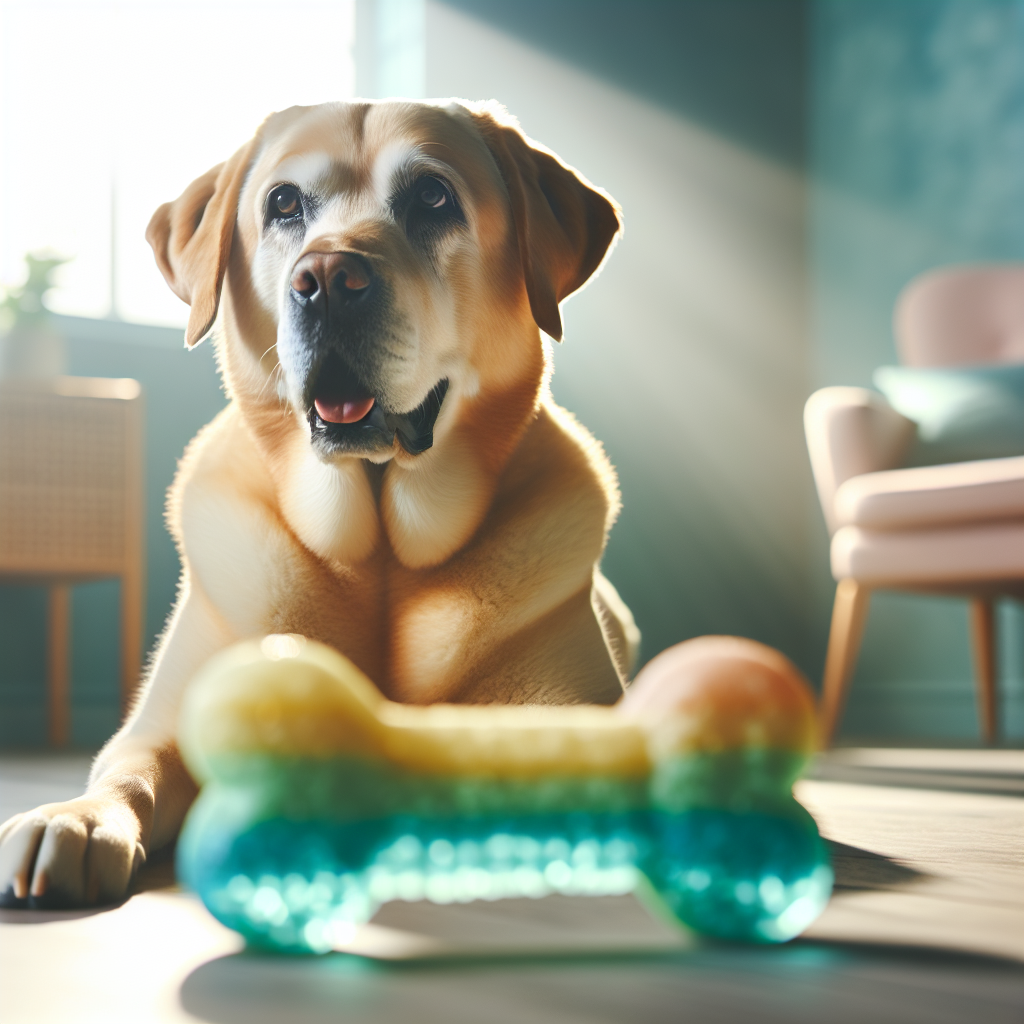Unveiling Dog Calming Treats: Side Effects to Watch For
Dog calming treats are specially formulated snacks designed to help alleviate stress and anxiety in dogs. These treats typically contain natural ingredients known for their soothing properties, such as chamomile, L-theanine, and hemp. They can be a useful tool for pet owners looking to ease their pets' discomfort during high-stress situations like thunderstorms, fireworks, or even separation anxiety.
It's important for dog owners to understand that these treats are meant to support, not replace, proper training and behavioral techniques. When used as a complementary aid, they can help make training sessions more effective and improve a dog's overall emotional balance. As pet parents, it's essential to choose high quality healthy dog treats that not only assist in calming your pet but also contribute to their overall well-being.
Treat your furry friend to the joy they deserve with our range of delicious and nutritious dog treats. Visit happypup.dog to explore our selection of dog calming treats that are tailored to help your dog relax while also providing nutritional benefits. By opting for premium treats from Happypup.dog, you can ensure that your canine companion is receiving the best in both comfort and health.
Common Ingredients in Calming Treats for Dogs

Calming treats for dogs often comprise a blend of ingredients known for their natural soothing effects. One of the most common ingredients is chamomile, an herb that has been used traditionally to reduce anxiety and settle stomachs. Similarly, valerian root is frequently included for its sedative properties, which can help to relax nervous dogs. Another popular ingredient is L-theanine, an amino acid found in green tea that promotes relaxation without causing drowsiness.
Many calming treats also contain hemp, which includes compounds such as CBD that have been associated with reducing anxiety and promoting a sense of calm in dogs. In addition, ingredients like passionflower and ginger are sometimes used to help soothe anxiety and support digestion, respectively. It's also common to find melatonin in these treats, a naturally occurring hormone that can help regulate sleep and provide relief from anxiety and stress.
When choosing calming treats for your canine companion, it's crucial to look for products that clearly state the type and amount of each ingredient used. Transparency in ingredient sourcing and manufacturing processes is key to ensuring the safety and efficacy of these calming aids. By being informed about the common ingredients in calming treats, dog owners can make better choices for their pets' health and comfort.
Potential Side Effects of Calming Treats in Dogs

While calming treats can be beneficial for managing anxiety in dogs, it is important for pet owners to be aware of potential dog calming treats side effects. Some dogs may experience mild gastrointestinal upset, including symptoms such as diarrhea or vomiting, particularly if they have sensitive stomachs or if the treats are introduced in large quantities. Additionally, ingredients like valerian root and melatonin, though generally safe, can cause drowsiness or lethargy in some dogs, especially when given in higher doses or to dogs with pre-existing health conditions.
Allergies are another concern, as some dogs may have allergies or intolerances to certain herbs or compounds found in calming treats. It's important to monitor for signs of allergic reactions, such as itching, swelling, or difficulty breathing. In rare cases, more serious side effects like changes in blood pressure or heart rate could occur, especially with improper dosing or in combination with other medications.
It's crucial to follow the recommended dosing instructions provided by the manufacturer and to consult with a veterinarian before introducing any new supplements or treats to your dog's diet. If any adverse reactions are observed, discontinue use immediately and seek veterinary advice. Pet owners should also consider the overall diet and health of their dog when selecting calming treats, as a holistic approach to wellness can help minimize the risk of side effects.
How to Identify Adverse Reactions in Your Dog

Identifying adverse reactions in your dog after giving them calming treats is critical for their health and safety. Adverse reactions can manifest in various ways, and it's important for pet owners to observe their dogs closely after administering any new treat or supplement. Look out for changes in behavior such as increased agitation, lethargy, or depression. Physical signs such as excessive drooling, changes in appetite, or difficulty with coordination can also indicate an adverse reaction.
To ensure the well-being of your canine companion, keep an eye out for gastrointestinal issues such as vomiting, diarrhea, or constipation. Skin reactions like hives, redness, or itching may also occur, particularly if your dog has a sensitivity to any of the ingredients in the treats. Respiratory symptoms, although less common, can include coughing or wheezing and should be addressed immediately.
If you suspect your dog is having an adverse reaction, it is vital to act swiftly. Document the symptoms and the time they occurred relative to the treat administration. This information can be invaluable to your veterinarian, who can provide an accurate diagnosis and appropriate treatment plan. Always err on the side of caution; if the symptoms are severe or persist, do not hesitate to contact your vet. Early intervention is key to preventing more serious health issues.
Choosing Safe and Effective Calming Treats for Your Pet
When it comes to choosing safe and effective calming treats for your pet, it is essential to consider several factors to ensure that your dog is not only soothed but also healthy. The first step is to look for products that contain natural ingredients known for their calming properties, such as chamomile, L-theanine, or CBD oil. It's equally important to check for any artificial additives, preservatives, or fillers that could potentially cause harm to your pet.
Before making a purchase, research the brand's reputation and read reviews from other pet owners. Brands like Happypup.dog are committed to providing high-quality and healthy options for your furry friend. Look for treats that are backed by clinical research or have been recommended by veterinarians.
Another crucial factor is the correct dosage for your dog's size and weight. Overdosing can lead to unwanted side effects, so always follow the instructions on the package or seek advice from your vet. It's also worth considering your dog's dietary restrictions or allergies; always opt for hypoallergic options if your dog has a history of food sensitivities.
Lastly, observe how your dog reacts to the treats. A safe and effective calming treat should gradually relax your dog without causing drowsiness or changes in behavior. Keep in mind that what works for one dog may not work for another, so it may take some time to find the perfect treat for your pet's unique needs.
When to Consult a Veterinarian About Calming Treats

Consulting a veterinarian is a crucial step when incorporating calming treats into your dog's routine, especially if you observe any adverse reactions or if your dog has pre-existing health conditions. If your pet displays signs such as excessive sedation, digestive upset, or allergic reactions after consuming calming treats, it is imperative to seek professional advice. Additionally, if your dog is pregnant, nursing, or on medication, a vet's guidance is necessary to avoid potential interactions.
It's also recommended to talk to your vet before starting any new supplement, including calming treats, to ensure they are a good fit for your pet's specific health profile and needs. A veterinarian can help you understand the appropriate dosage and frequency, and may also suggest alternative therapies for anxiety relief.
Remember that while calming treats can be beneficial for managing stress and anxiety in dogs, they should not be a substitute for proper training, exercise, and environmental enrichment. If your dog's anxiety issues persist despite using calming treats, it might indicate an underlying behavioral or health issue that requires professional intervention.
Treat your furry friend to the joy they deserve with our range of delicious and nutritious dog treats. Explore the options we have available at Happypup.dog and feel confident in providing your pet with the highest quality of care and comfort.






